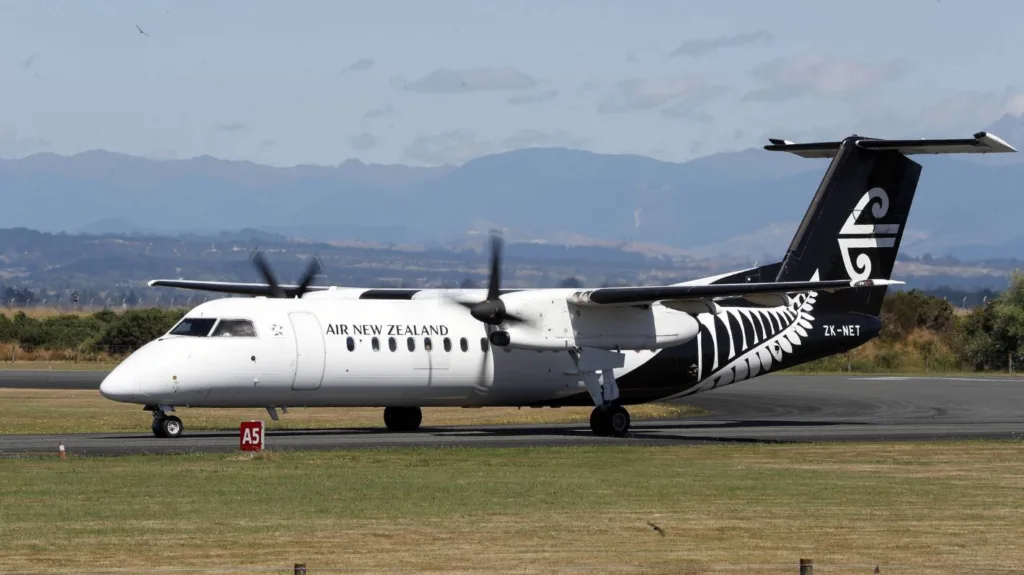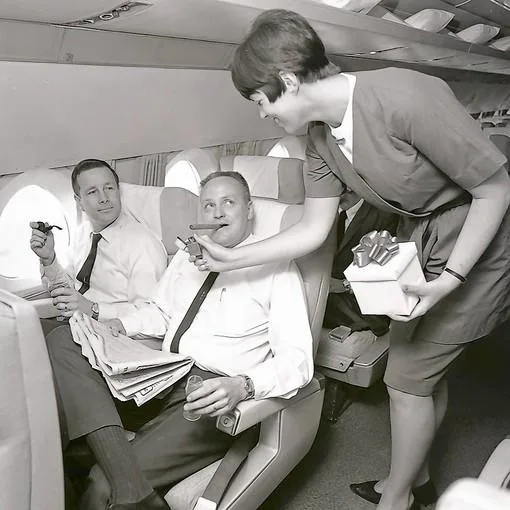
Air New Zealand Flight Attendant Accused of Vaping and Texting Mid-Flight, Violating Aviation Regulations

Air New Zealand is facing accusations of a breach of civil aviation laws after a passenger on a recent flight claimed to have witnessed a flight attendant vaping and texting mid-flight, activities that are prohibited.
According to reports, the incident occurred on flight NZ8884 from Wellington to Napier on 26 March, during which the passenger claims to have seen the flight attendant sitting down to vape after performing a safety briefing instructing passengers to refrain from smoking or using their phones.
Mike Georgantis, a Napier-based private investigator, who was traveling with his wife on the flight, claims that he was “absolutely positive” of what he saw. The passenger added that the offending flight attendant also held the PA phone upside down during the safety briefing, and after finishing, sat down in the front seat and immediately started texting.

Attempts by Georgantis to contact Air New Zealand were unsuccessful as he received automated responses and had his calls disconnected. He even tried to email the airline’s CEO, Greg Foran, but received no response, after which he decided to go to the media.
According to the Civil Aviation Authority (CAA), crew or passengers caught smoking or vaping on a flight face a maximum fine of $2,500 (£1,264), and the CAA would follow the same process in investigating the alleged breach, regardless of whether or not it is a staff member or a passenger involved, as section 65N of the CA Act applies to every person.

Georgantis has emphasized that the alleged incident is a serious safety issue and stated that if a member of the public were caught vaping, they would be met by the police. Vapes and e-cigarettes were banned from airlines in over 45 countries in 2015 after incidents of the devices causing fires and explosions.
In early March, a Spirit Airlines flight was forced to divert after an e-cigarette battery caught fire on a flight from Dallas to Orlando. This incident highlights the potential dangers of smoking or vaping onboard an aircraft and how it can lead to serious consequences.
The allegations against Air New Zealand could lead to serious consequences, including legal action against the airline, and more stringent enforcement of the rules governing smoking and vaping on flights.
In conclusion, the incident involving the Air New Zealand flight attendant vaping and texting mid-flight is a clear violation of civil aviation laws and could have serious consequences. The airline industry must take strict measures to enforce the rules regarding smoking and vaping on flights to ensure the safety of passengers and crew. It is also essential that passengers and crew understand the potential dangers of smoking or vaping onboard an aircraft and the consequences of non-compliance with the rules.
Firstly, vaping on an airplane is prohibited because the lithium-ion batteries used in e-cigarettes and vapes have been known to cause fires and explosions, which can be catastrophic in the confined space of an airplane. In fact, vapes and e-cigarettes were banned from airlines in over 45 countries in 2015 due to the potential for fires and explosions.

Secondly, using electronic devices, such as mobile phones or tablets, during takeoff and landing can interfere with an airplane’s navigation and communication systems. This interference can cause malfunctions or errors in the plane’s systems, which can have serious consequences. As such, the use of electronic devices during these critical phases of flight is strictly prohibited.
Moreover, flight attendants have to ensure that all passengers comply with safety regulations, including refraining from smoking, vaping, and using electronic devices during critical phases of flight. Any breach of these regulations can cause confusion and potentially compromise the safety of the aircraft.
In conclusion, vaping and texting on a plane are prohibited for good reason. They pose significant safety risks and can compromise the safety of the aircraft and its passengers. It is essential that all passengers and crew comply with the rules and regulations set forth by the airlines to ensure a safe and comfortable flight.








